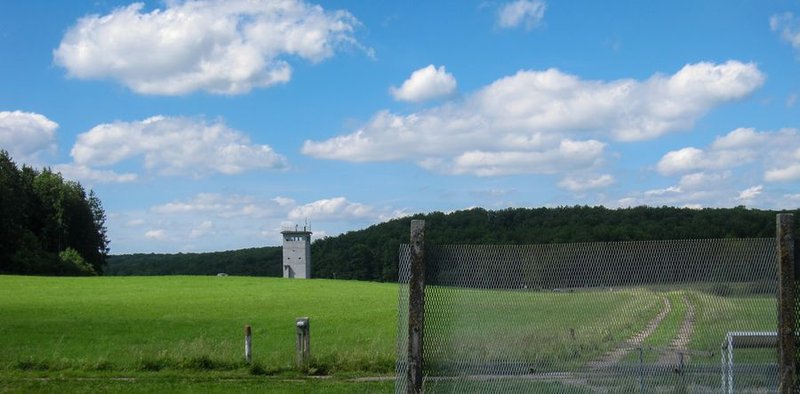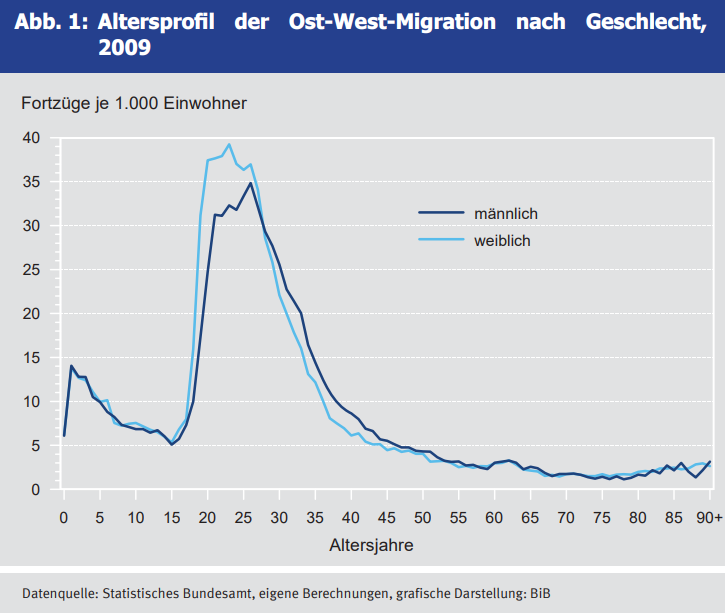Migration and Business in Germany
In recent weeks, Germany has been on the international news. In the state elections in Thuringia and Saxony (where I live), the extreme right-wing AfD and left-wing BSW have gotten huge voter support. Their focus on immigration, border security, and crime, as well as skilled harping on East-West differences in Germany, seems to have had a significant impact.
Background
Describing East Germany is tough. I grew up here, in Saxony-Anhalt, in a city close to where the border used to be, and countless people lost their lives trying to escape the socialist GDR regime. I was born in 1994, five years after the wall came down. Giant bald strips cut into the dense forest, abandoned surveillance buildings and watchtowers, and mined patches with warning signs are still vivid memories of my childhood.
People here are crafty, support each other, and often crave stability. In the GDR, work used to be organized around the workplace - factory-owned sports teams, factory-owned houses in nice spots to vacation at, etc. After the reunification, most of these factories and associated real estate were sold to West German corporations for a fraction of their value. Most locations were promptly closed to remove market competition. When the Treuhand closed in 1994, its tab racked up more than 3 million destroyed jobs and a debt mountain of 264 billion D-Mark. Accounting for exchange rate and inflation adjustment, that's €234.5B. This, which can only be described as the sale of East Germany, left many communities in economic shock that lasts to this day.
As a result of economic hardship, "the West" always looked more attractive: International communities, a higher median salary, more career prospects, all the classics. Whoever had a higher degree or was skilled at a trade would have better chances. This brain drain continued long after the reunification. In 2013, when I moved away from home to study in Dresden, my parents told me not to move back home after my degree. They said something like "Only the old and the stupid remain here".
I was not the only one. Impressive statistics are showing east-west migration inside Germany. One that particularly stuck with me is the migration statistics by gender.
While these numbers have slightly decreased in the last years, the overpopulation in men remains. Some sociologists hypothesize that there is a correlation between a higher population of men and the emergence of extreme political ideas. That's theory, however, and I'm neither a sociologist nor do I have time for a research tangent right now.
I am trying to paint a picture for you, dear reader, of what might trouble people in East Germany. It's not hard to empathize with someone who feels "left behind" because their salary hasn't grown in the last ten years, but everything is twice as expensive. Then the pub next door closes because there is not enough business. Then the supermarket next door closes so you must drive 15 minutes to get to the other one. Then, the neighborhood you grew up in gets bulldozed because there is no demand for living space. But at the same time, rents are increasing. Your landlord? Never met them. They sit somewhere in Bavaria.
Not all is doom and gloom, however. Because of the GDR cultural heritage where both parents had to work to make a living, it's way easier to get a Kindergarten spot and daycare. As recently measured as 2024, the gender pay gap is significantly lower and has been for many decades. There is also a lower cost of living. However, weighing that against the lower local salaries and significantly fewer people owning financial assets such as real estate or stocks, I wouldn't call that an advantage.
Politics
Your guess is as good as mine. Experts and pseudo-experts have different hypotheses as to why the recent elections have taken such a hard turn towards extremist parties. There are significantly fewer immigrants present in East Germany, and migrant crime statistics compared with local German ones are hardly significant. It could be mass media pushing individual cases into the spotlight for rage bait to maximize clicks and money, a targeted campaign by radical nationalist parties to capture votes, me trusting government statistics too much or misinterpreting them, or a mix of all.
Personally, as someone who has studied in Dresden, worked with Afghan and Syrian refugees, and now lives in Leipzig, I feel like the respect for facts and the democratic system is on the decline. When two opposing political sides discuss, things quickly become irrational. There is no comparison of policies, attacking the other person's ideas for lacking nuance, and consequentially having to listen to what they say. There is populism, catchy slogans without much substance, and lots of feel-good rhetoric. They are strong, but we are stronger. They want to manipulate us, but we are enlightened. We have been neglected for so many years, and now is the time for us to rise and get justice.
I am convinced the majority of people in East Germany, the "new states," have been systematically disadvantaged. Don't believe me? Go to the Federal Office of Statistics website and pick out any map. There is a good chance you'll see the border between East and West Germany clearly cut into it. Or for instant gratification, the Berliner MoPo prepared something for you. It's an impressive and yet incredibly defeating exercise.
Business
With the above maps in mind, I founded a business in Leipzig. It's just me, no other employees. The taxes in Germany are high, the bureaucracy is an absolute beast that can hardly be tamed by anyone who doesn't have a team of at least five people behind them. There are few other technology companies in the region, so meeting fellow founders is hard, and the federal and state governments give you very little incentive to exist. You're on your own with your financial planning, risks, and the burden of the government's complex interfaces. The one thing you can get quickly is advice. But it's only basic advice, and it's always the same. No money, no concrete help.
Part of me thinks that I'm an absolute idiot. Taxes, reporting obligations, and following arbitrary bureaucratic processes are eating up a large chunk of my time - now, with the additional pressure I have to earn my salary. In this matter, wasted time should be kept to a minimum. The other part of me thinks it's the right thing to do. I live here. I use the healthcare system, visit the parks, enjoy public transportation, and appreciate cultural events sponsored by the local government. My alma mater is TU Dresden, a top public university in the state. And one that I have fond memories of.
Coming from a humble working-class family, jumping into my current social class has been all but easy, but without the essential services of the federal and local governments, it would have been absolutely impossible. None of this would exist without the massive infrastructure around me and the people who get paid to run it. It is an amazing thought that fills me with immense gratitude every time.
At the end of the day, where people bring their business and what ideals they live by is their choice. I would not call anyone ungrateful who does not go the route I did.
The Point
All of the above is not specific to Saxony. A new wave of anti-foreigner bullshit is gripping Germany. Now that the people have made it clear to politicians that they want more deportations, it is more deportations they will receive. When a quota must be met, it won't be the criminal minority of immigrants that will get deported. Their origin states won't be eager to have them back; they will lose their passports and use every trick in the book to outplay the overly bureaucratic processes.
Consequently, it will be the "other foreigners," the majority of immigrants to Germany. They are the people who are registered, who always submit all of their documents on time, and who can easily be found and deported to make "number go up." Here are some examples from West German states where no extremist political party governs.
- Stuttgart wants to deport a Japanese church musician
- In the black forest, a painter will lose his working and well-integrated Syrian colleague, his only employee
- In Bavaria, an Egyptian worker will be deported despite having worked in Germany for 4 years, never having taken government aid, and still having succeeded even though the government forbid him from doing an apprenticeship.
- The city of Leverkusen is trying to deport a roofer apprentice despite him having a job, their own income, and integrating well with German society
It is not hard to imagine that, should this political trajectory continue, the brain drain on East Germany will advance even further. Radical opinions will become stronger. It will become more challenging for foreigners to study at public universities and get government support. Once foreigners graduate, it will become significantly more complex than it already is to establish themselves in Germany as a productive and well-integrated member of society. The foreign workforce will decrease more than it already does. Besides economic decline, this might end the welfare state when the tax burden becomes impossible for the working generations.
Preparing
I am incredibly worried for Germany's economy. Political parties on the extreme ends will rile up the population, find easy truths and ready scapegoats, and not only lead people into a worse future but make them feel great while they walk into it.
There are few things I can be sure of in these times. I cannot change the minds of people who have accumulated more years of resentment than I have been alive for. I can, however, prepare myself for possible consequences. My wife is not German, and in the future, it's conceivable that she will not be allowed to live here anymore. I will go where she goes. My business will go where I go. Our taxes, education, and social engagement also follow.
I hope never to see this day come. I hope people will come to their senses and stop buying into simple truths and big promises.


